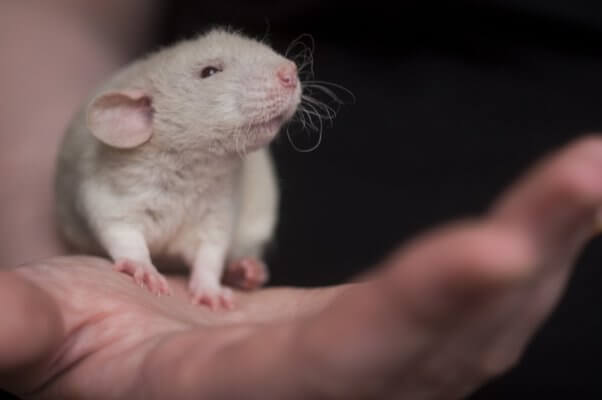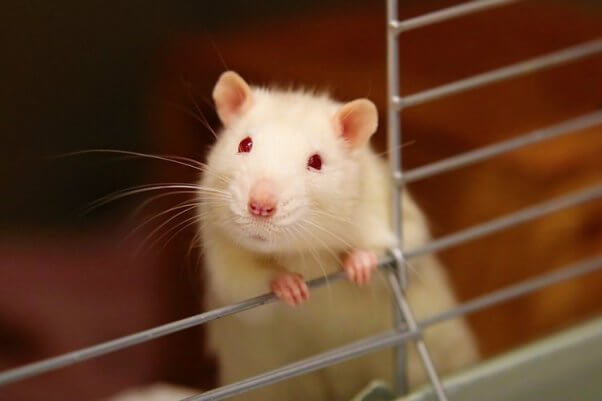NIMH Funnels Millions of Tax Dollars Into Archaic Animal ‘Fight Clubs’
Small animals are fighting for their lives in experiments bankrolled by the National Institute of Mental Health (NIMH). Experimenters lock mice, rats, hamsters, and others in cages so that one will be beaten up by the other in gruesome gladiator-style tests. Known as “social defeat” experiments, these tests haven’t produced a single treatment for humans, despite having received nearly $15 million in taxpayer funds.
Inside Tax-Funded ‘Fight Clubs’
In social defeat tests, two animals—one who’s small and docile and another who’s bigger and more aggressive—are locked in a cage together. Experimenters then watch as the more aggressive one beats up the more timid one. This can continue for up to 20 minutes or until the smaller animal sustains a wound determined to be large enough to end the test. Some of the victims die if experimenters don’t separate the animals in time.
The docile animals cry out for help, become immobile in order to avoid being attacked again, or roll into a submissive position—all signs of fear and distress. And they continue to suffer long after the experiment has ended. Anxiety, depression, weight loss, and an increase in heart rate, temperature, blood pressure, and stress hormones are all symptoms of distress that may last for several days. In some experiments, animals’ skulls are cut open and electrodes are inserted into their brains.
40+ Years in the ‘Fighting Ring’
If this experiment sounds archaic, that’s because it is. It emerged in the 1980s when experimenters noticed that animals who experienced social defeat displayed negative physical and behavioral symptoms.

Today, experimenters force small animals into the home territory of more aggressive or dominant ones in order to induce stress, hoping it will cause symptoms of anxiety, depression, autism, and post-traumatic stress similar to those found in humans or increase the animals’ risk of drug addiction. Use of the test has skyrocketed over the past decade, and it appeared in 10 times as many published papers in 2020 as in 2010.
The NIMH Director’s Low Blow
NIMH’s director, Joshua Gordon, previously put his own twist on the tortuous test.
In a 2018 tax-funded experiment, Gordon rubbed male mouse urine on the tails and vaginas of months-old female mice. Then he dumped the females into cages with large, aggressive male mice and watched for up to 10 minutes as they were repeatedly assaulted. Once time was up, the victims remained trapped in the same cage as their attacker for another 24 hours, separated only by a divider.
The females endured this horror for 10 days—with a different attacker each day.
Throwing in the Towel
The problems with social defeat tests can’t be overstated. To begin with, in their natural habitats, animals can try to escape from their attackers.

Forcing animals to fight under artificial laboratory conditions can’t even begin to replicate the complex interactions between genetic and environmental factors that give rise to human neuropsychiatric conditions. Humans who suffer from anxiety, depression, post-traumatic stress disorder, autism, substance use disorders, and more experience unique symptoms and highly variable reactions to treatments and therapies, none of which can be simulated in laboratory experiments on animals.
Help Knock Out Cruelty
NIMH’s own published studies have found that animals aren’t good models for human afflictions. Scientists around the world are already using advanced, animal-free technology to study human brain conditions without inflicting pain or suffering on animals.
NIMH has received more than $16 billion in taxpayer funds over the past decade. Please urge the agency to stop wasting tax money on cruel and pointless animal experiments and instead to fund superior, human-relevant research:
And if you’re a U.S. resident, please take additional action for animals in laboratories by supporting PETA’s Research Modernization Deal, which outlines a comprehensive strategy for replacing all experiments on animals with more effective, human-relevant, non-animal methods:

